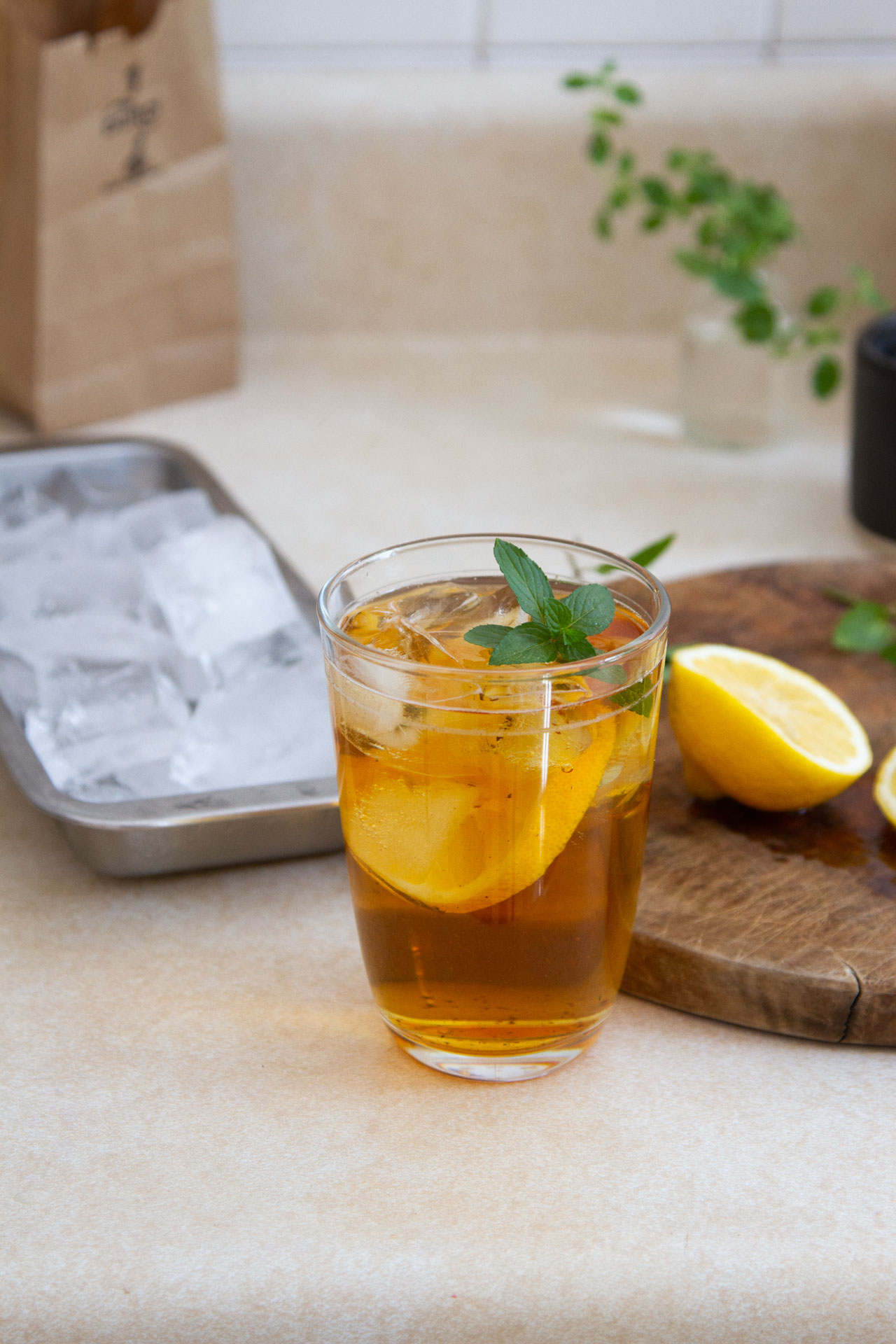
I spend a lot of time thinking about how to harness the incredible solar energy that shimmers off of the old silvery roof outside our kitchen window. If I had my druthers there’d be solar panels and a reinforced roof ready for a 200-square-foot carbon sequestering garden, but I’m getting ahead of myself as usual. For the time being, one very small way I take advantage of the heat outside the window is by brewing large jars of sun tea. At the hottest time of day, I can set a jar of tea to brew on the roof and have it ready to drink within an hour, without ever having to boil water.
Brewed on a city roof or smack dab in the middle of a suburban backyard, here’s to sun tea.
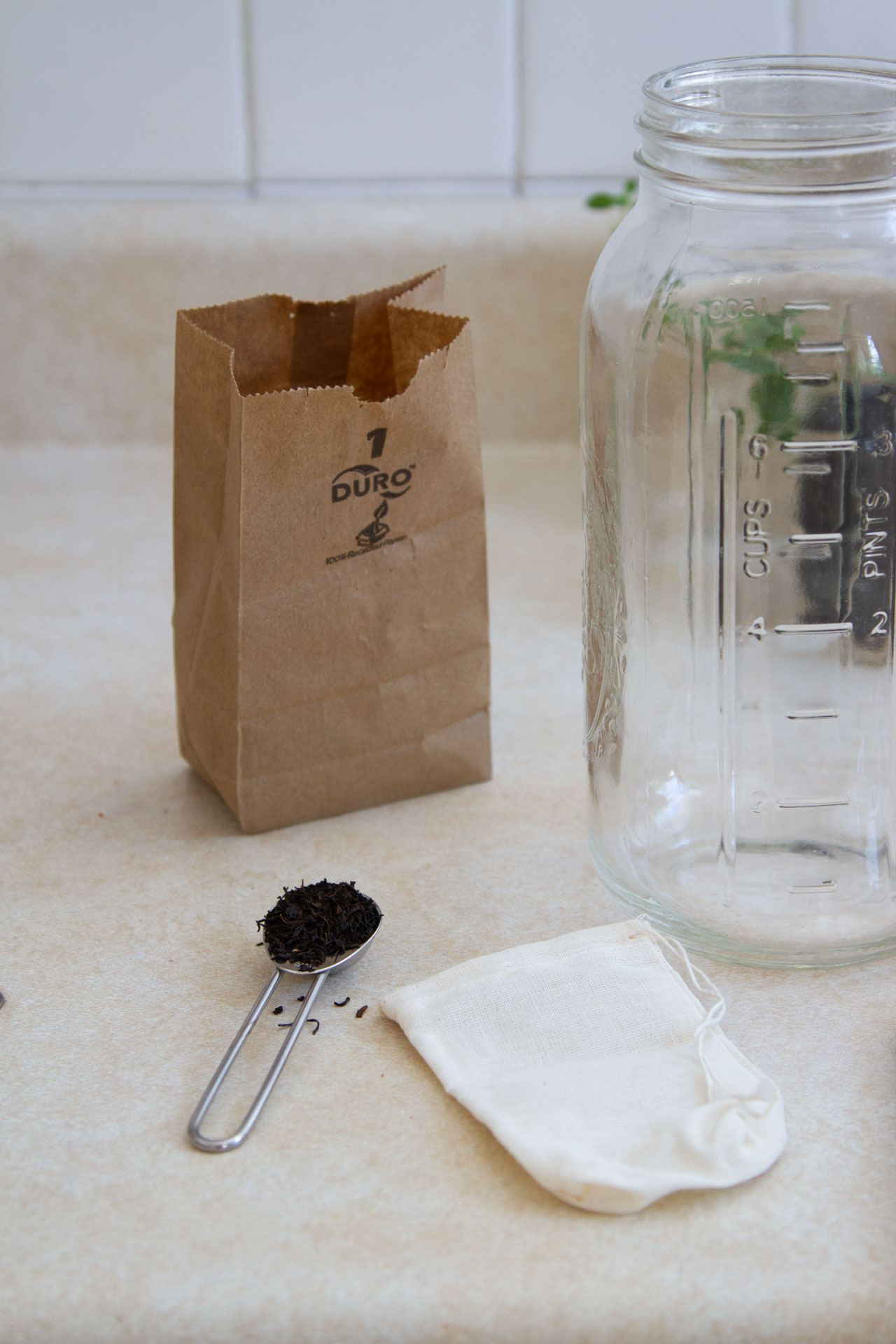
Here’s what I do:
+ For a traditional pitcher of black tea, I typically use about a teaspoon of loose tea per cup of water. The tea shown here is the Texas Iced Tea Blend I found at my local herb shop. (This afternoon we also brewed a pot of Butterfly Pea Flowers and to say my kids were delighted is an understatement.)
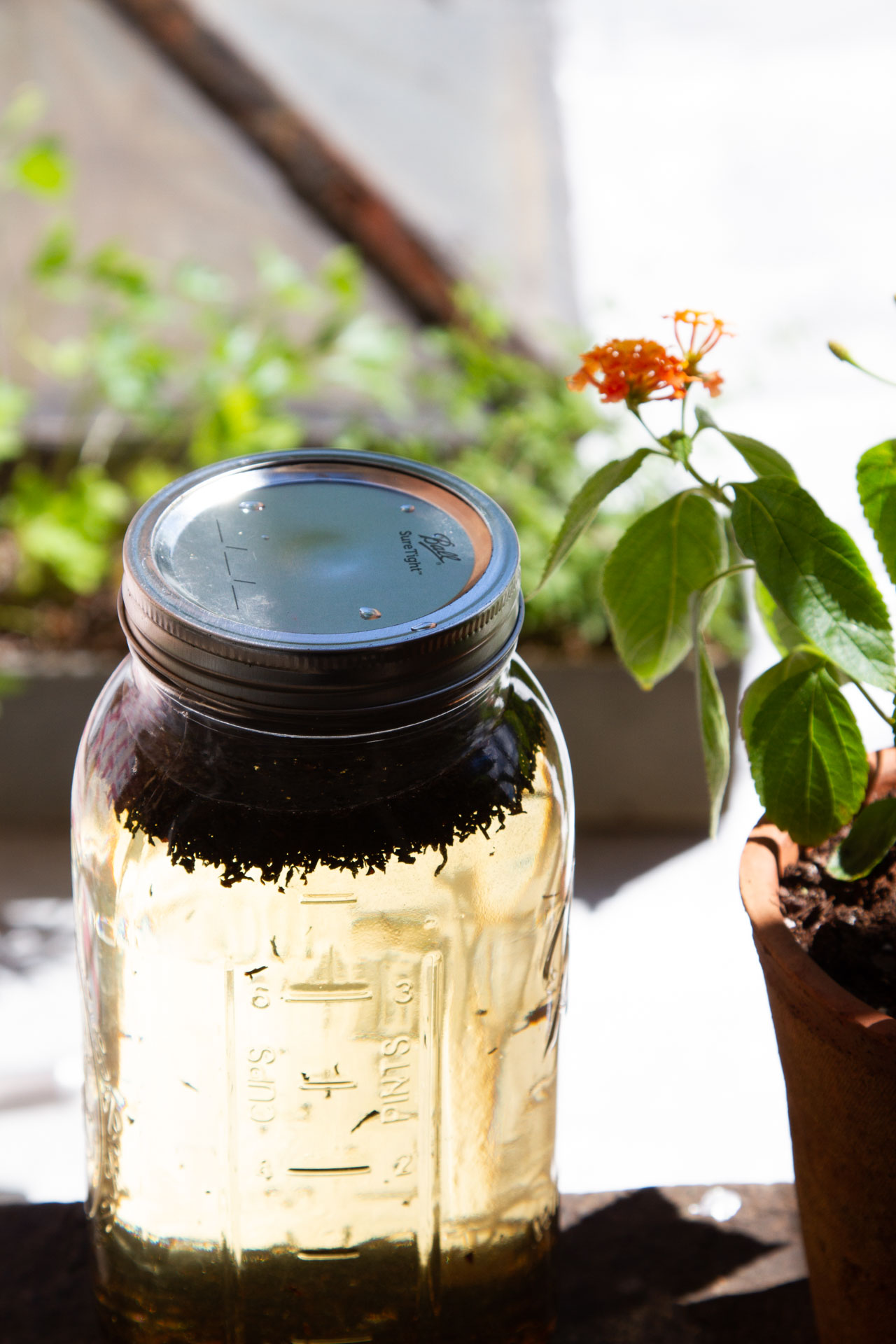
+ How long the tea takes to brew depends a bit on the amount of sun I have and the type of tea I’m brewing. I find that an hour in the very strong afternoon sun is often more than enough to reach a rich honey-colored tea, but I also sometimes set leaves to steep in the morning before I leave the house and don’t strain them until evening.
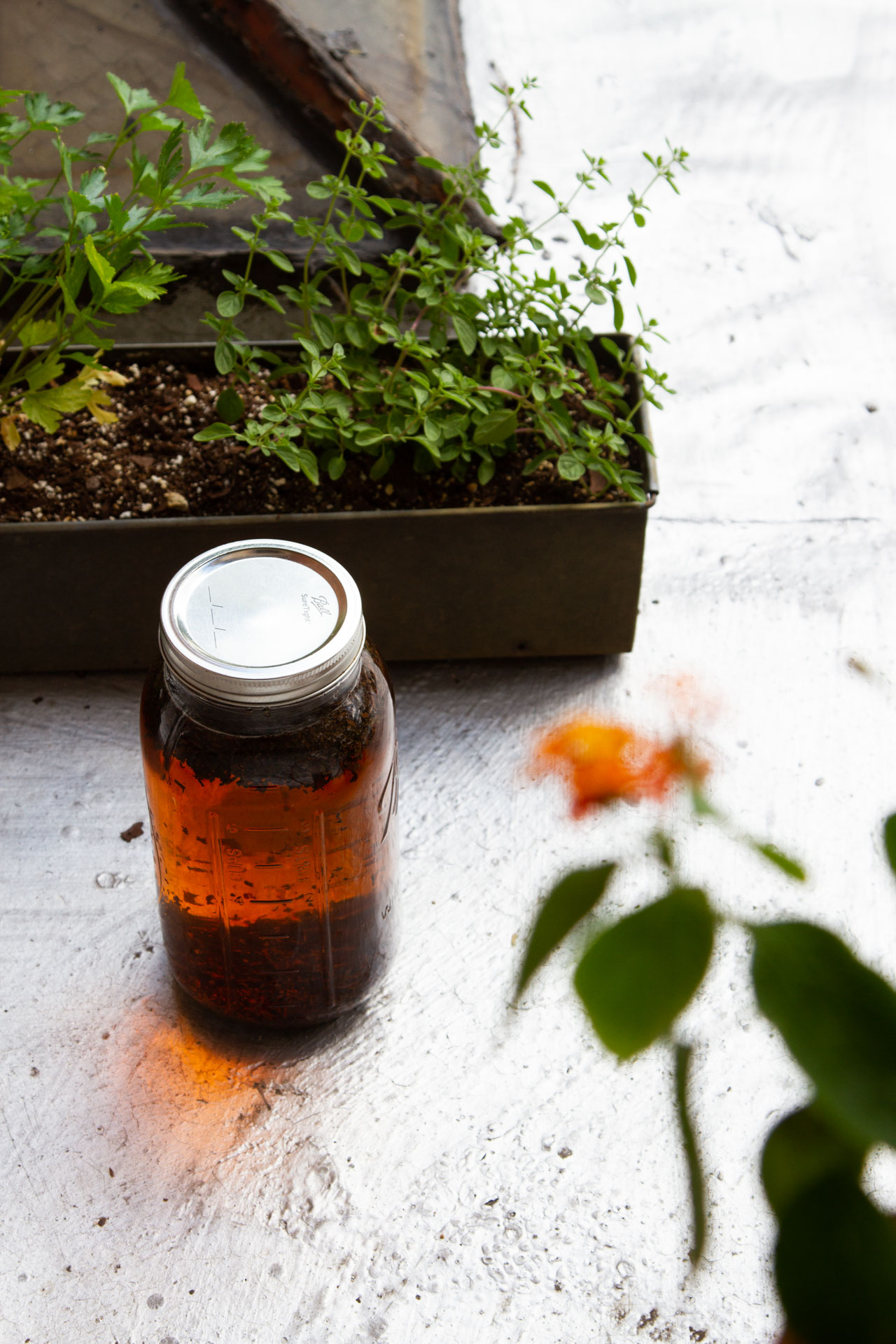
+ My favorite jar for the job is the 64-ounce Ball mason jar. These jars are compact enough that they can fit on a window ledge and large enough that I can make enough tea to last a few days in the fridge (or quench the thirst of a party of picnickers).
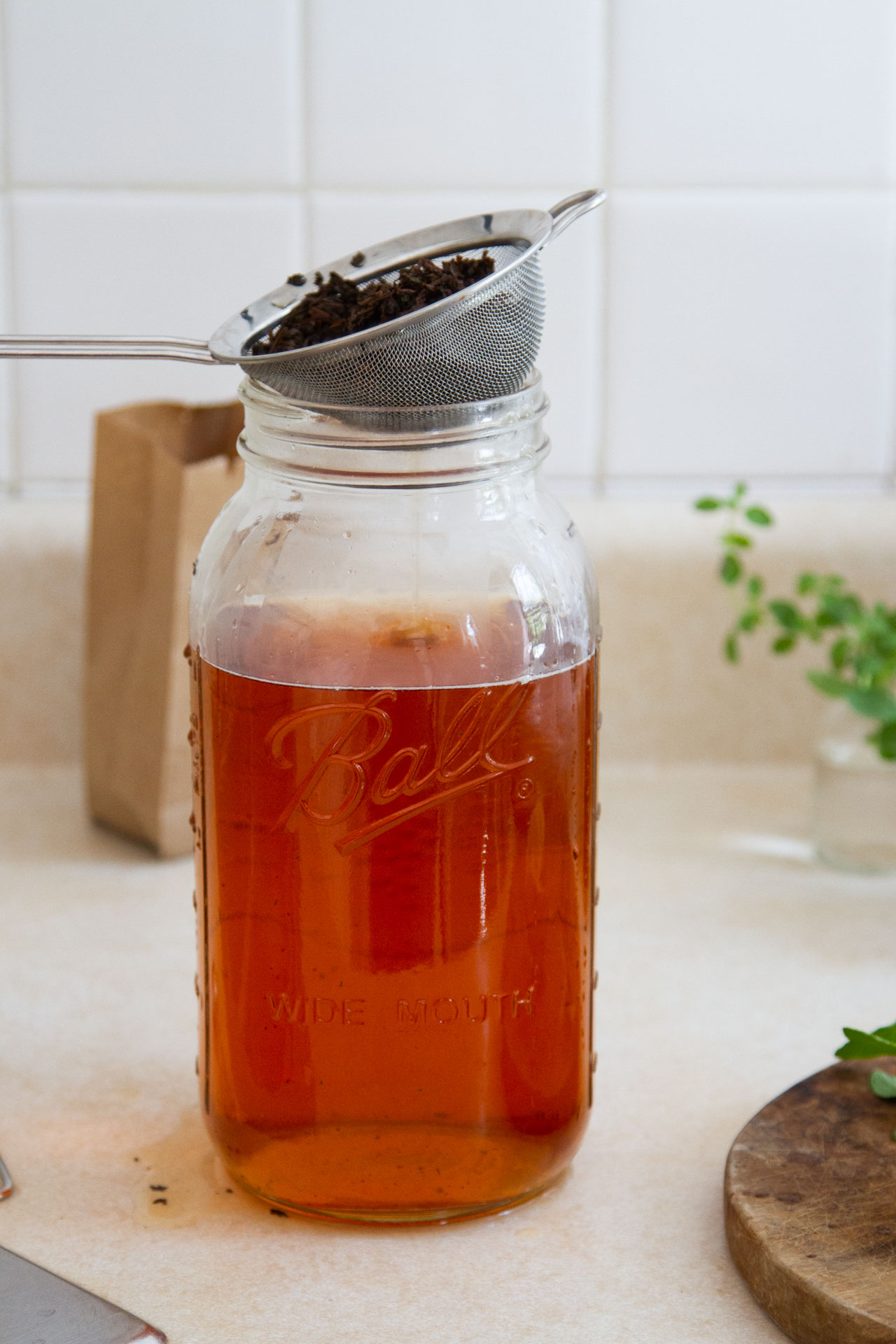
+ Once the tea is steeped, I strain it through a mesh sieve into a second clean jar or pitcher. If I find myself coordinated enough, I’ll have two empty jars ready from the get-go so that I can brew in one jar, strain the tea into a clean jar, and then refill the first jar with water and re-steep the same leaves. (Once I’ve brewed twice, I typically compost the leaves and start again with fresh.)
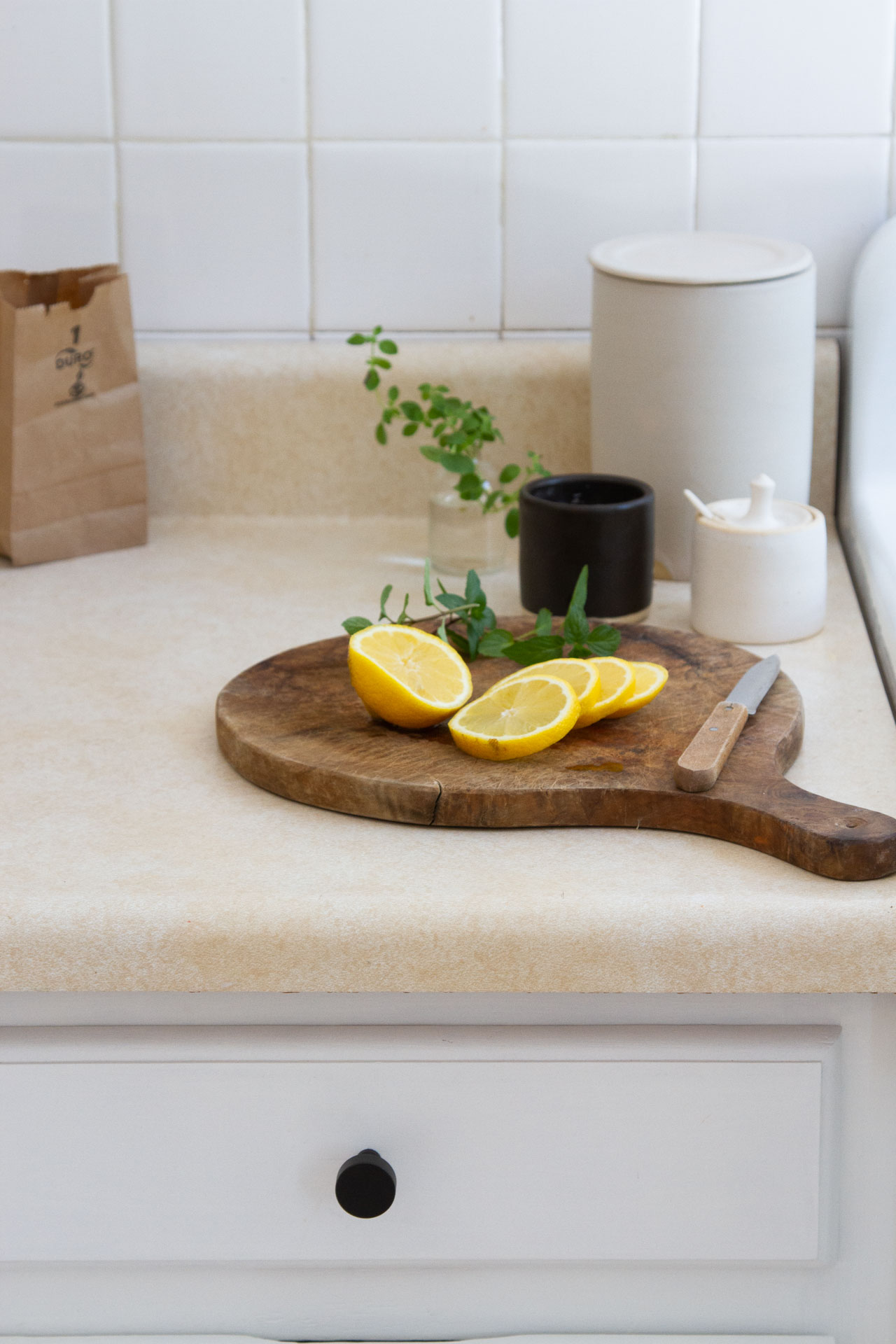
+ While it’s tempting to add sugar to the tea as it steeps, there’s some risk of bacteria growth with sun tea generally and especially with added sugar. Better to add sugar or honey after the plant matter has been strained. I like to add lemon and mint, too.
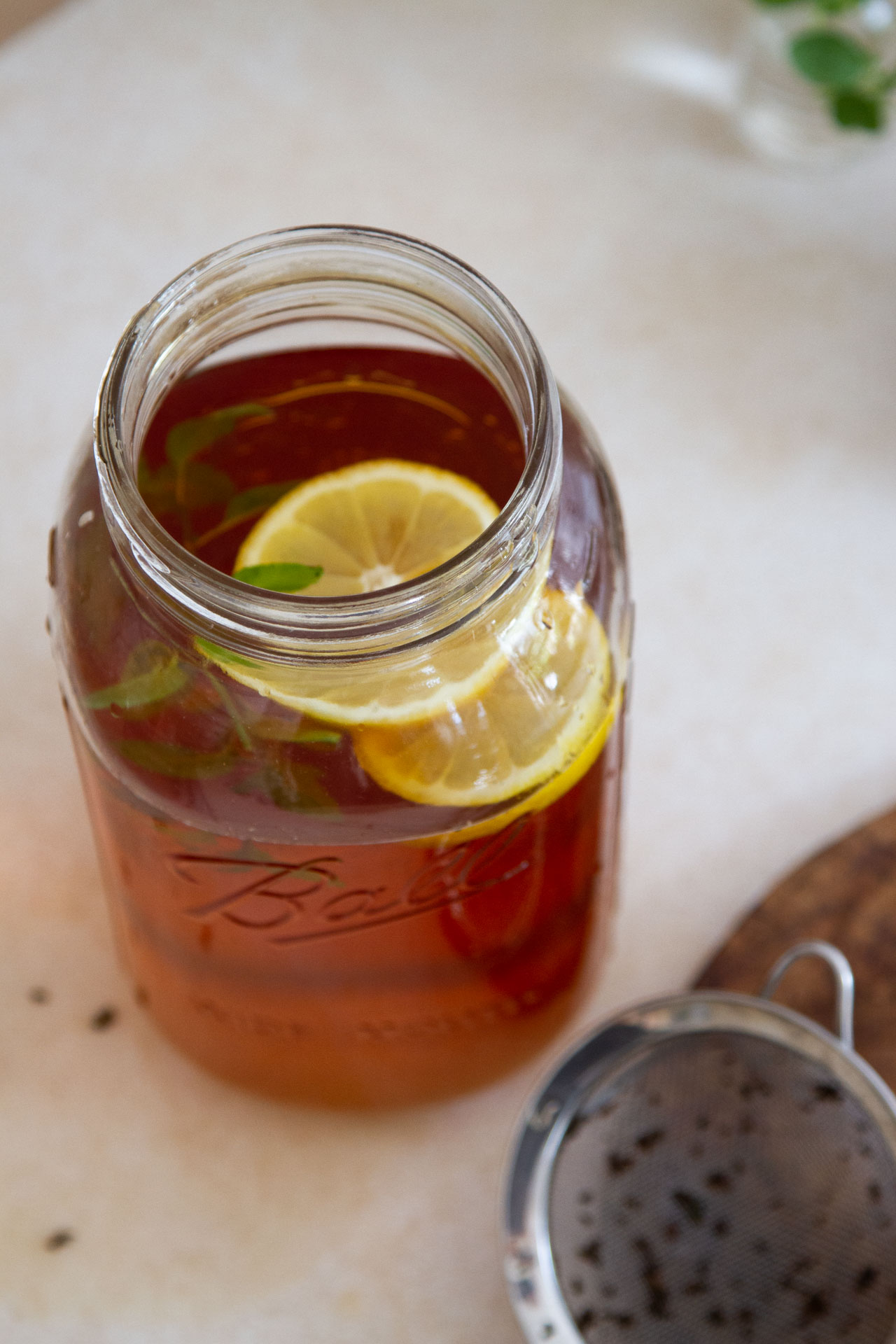
+ If you find yourself without a sieve or strainer, there are nearly limitless options for brewing: tucking loose tea into muslin spice sacks or nut bags or put a French press to work.
What’s quenching thirst in your world lately?
For the curious:
+ Our coffee canister was a gift from Notary Home; my tiny sugar pot was made by Sheldon Ceramics; the little black vessel was a Norden candle pot-turned-salt-cellar.
+ Our stainless steel ice cube tray and glasses are available at Food52.
+ We put the new hardware on our cabinets yesterday and I’m working on a longer post about our little kitchen updates. Coming soon!
This post includes affiliate links. Reading My Tea Leaves might earn a small commission on the goods purchased through those links.

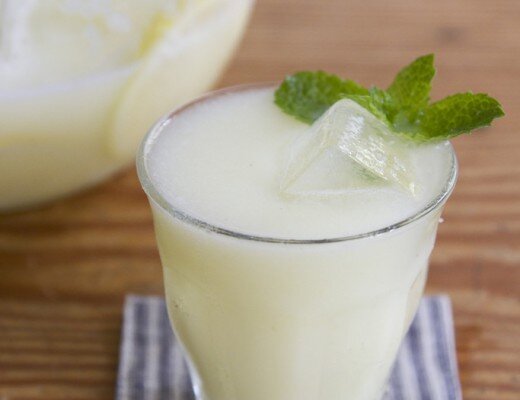
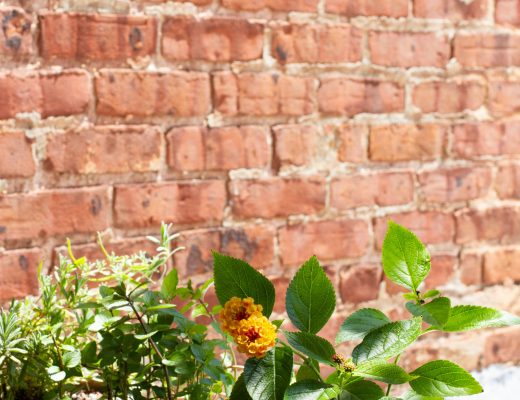
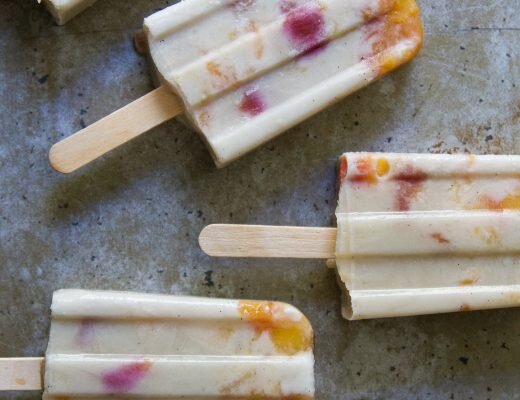
3 Comments
So simple and so good, thank you!! Also, I spy some new hardware on a drawer 🙂
Ooh, this was very timely! I was just thinking the other day that I should figure out how to make sun tea, because I’ve never done it before. You’ve inspired me to go for it! I appreciate the tip about not adding sugar while it’s steeping, I never would have known that.
I grew up on my grandmother’s sun tea and had forgotten about it until now. Thank you for the wonderful memories and the inspiration to carry on the tradition!
Comments are moderated.